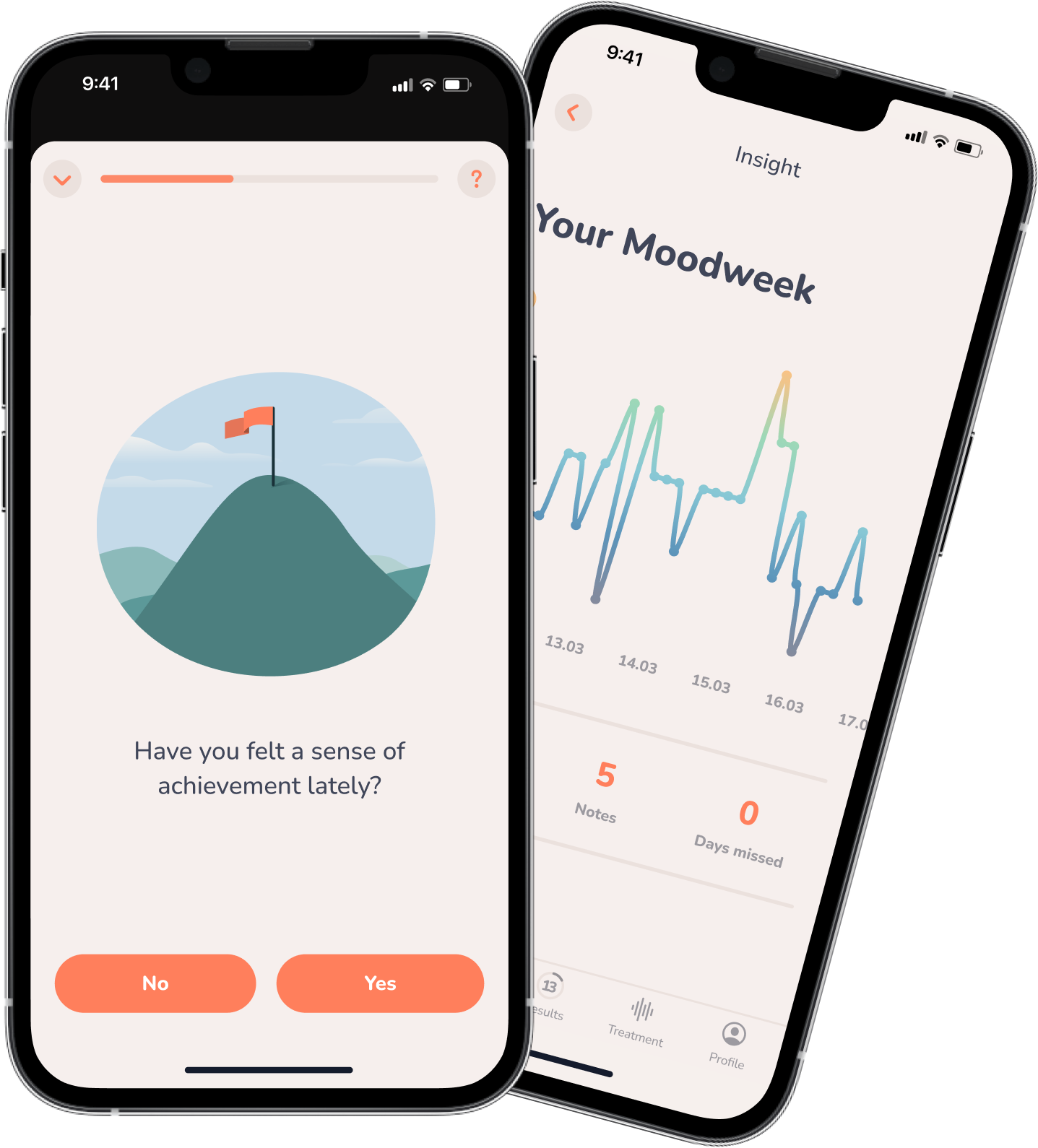Insight
Overwhelmed Instead of Overjoyed: Why Baby Blues and Postpartum Depression Hit so Hard
Many women who have just become a mother feel anything but happy. However, this is not unusual! After giving birth there is so much to process – no wonder that it sometimes doesn’t work out as smoothly as planned. But what’s the difference between baby blues and postpartum depression?
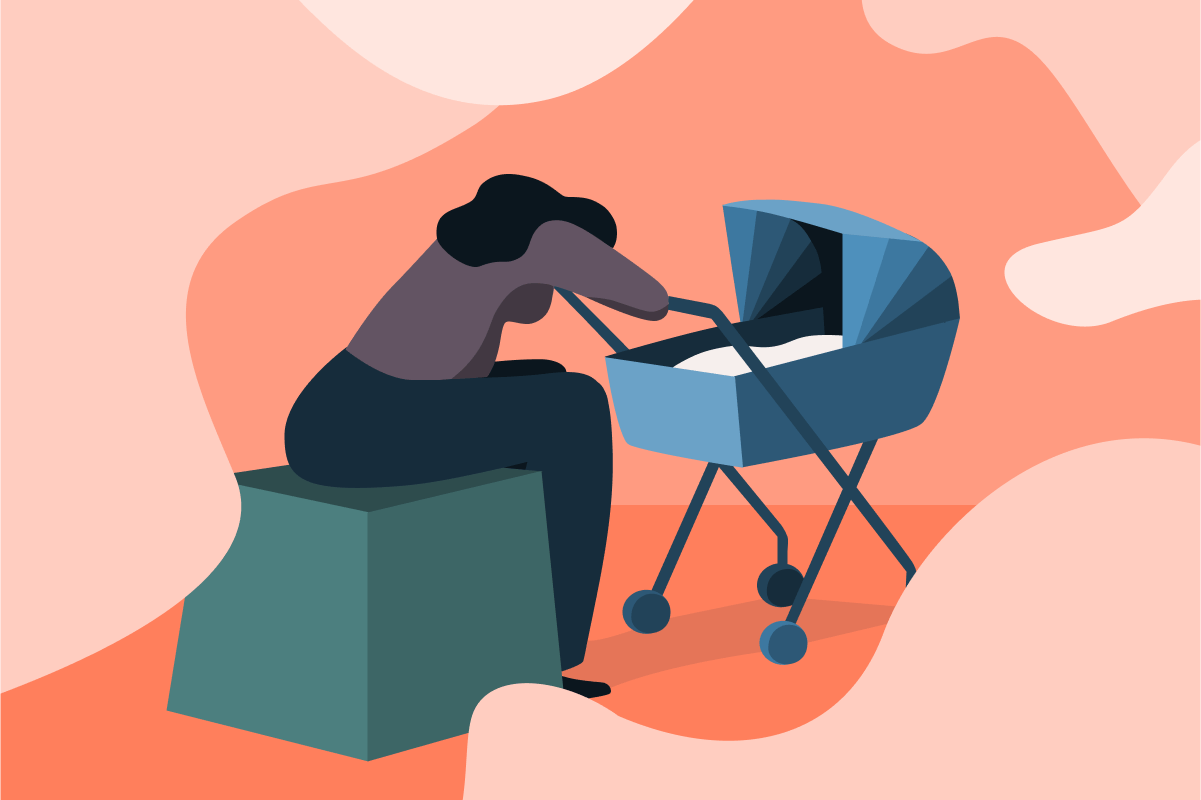
Mood Swings After Birth
Many parents describe it as the “happiest moment of their lives”: The moment their baby is born. A hail of congratulations, advice and well-wishing often signals to a woman, quite directly, how a mother is expected to feel. People often forget that every mother needs time to get a feeling for what she wants her personal motherhood to look like. An exaggerated ideal image of the mother is one of many reasons why the so-called baby blues, or even postpartum depression (as the depression is called which occurs in women as a result of the birth of a child), has been a taboo for so long.
Giving birth means severe stress for the body and mind. Therefore, it’s far from unlikely to fall into a depression afterwards: The baby blues affects about 50 to 70 percent of mothers.
Due to extreme hormonal changes, the baby blues usually starts roughly three to five days after birth. It manifests itself through severe mood swings, sensitivity, frequent crying, anxiety, exhaustion as well as loss of concentration, appetite, and sleep disturbances. This baby blues can last from a few hours up to several days. It usually subsides “on its own” and doesn’t require treatment.
Baby Blues vs. Postpartum Depression
If this emotional low doesn’t subside within two weeks, it’s time to consider the possibility of postpartum depression, also known as postnatal or puerperal depression.
For an official diagnosis, similar to the standard depressive episode, a certain number of symptoms must be present over at least 14 days. However, postpartum depression can linger for up to twelve months after the birth. About 10 to 20 percent of mothers suffer from it. This makes postpartum depression by far the most common mental illness after birth.
What’s often overlooked: The birth of a baby is also a risk factor for depression in men. According to a British study, about four percent of fathers slip into a depressive episode after the birth of their child. This is not due to hormone fluctuations, but rather due to the new and very intense challenge every parent faces.
One’s previous life and relationship with one’s partner inevitably change. Many men are confronted with a new kind of pressure and set of expectations. They may also struggle with feeling excluded due to the usually closer relationship between mother and child in the beginning.
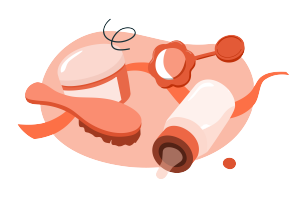
Ambivalent Feelings towards Your Child
Characteristics of postpartum depression are the usual symptoms of depression such as lack of energy, sadness, inner emptiness, feelings of guilt, extreme irritability, lack of interest, apathy, anxiety, and loss of concentration. In postpartum depression, hopelessness is accompanied by ambivalent feelings towards the newborn child. This in turn can increase feelings of guilt. People affected by puerperal depression are often very strict with themselves and don’t believe that they’re caring enough for their child.
Babies sometimes just don’t stop crying – a severe stress test, even for the nerves of the most patient parents. The lack of sleep, which young parents have to get used to at first, can further aggravate the symptoms. People affected by postpartum depression often experience obsessive thoughts, which can sometimes even manifest itself in thoughts of killing themselves or the baby. These thoughts and feelings are extremely straining for those affected. Postpartum depressed mothers often shower themselves with self-accusations and guilt and many feel too ashamed to talk about their symptoms.
At the same time, those affected are usually extremely anxious about the baby’s well-being. This can even lead to panic attacks. Even psychotic symptoms can occur, relatively often (in 1-3 of 1000 cases), in mothers after the birth of a child.
Risk Factors for Postpartum Depression
Due to the radical changes in life and the acute stress situation during and after childbirth, postpartum depression can affect any mother. Nevertheless, there are certain risk factors that place an additional burden on this life-changing experience.
Birth is hard work for the body. Afterwards, a woman is exhausted, but usually cannot rest because the needs of the newborn baby come first. In addition, there are physical changes – the stomach, breasts and metabolism change abruptly. In addition, the hormones go crazy: progesterone and estrogen levels suddenly drop, which can promote depressive moods and sleep disorders.
Women suffering from premenstrual mood swings and women with hypothyroidism are more likely to suffer a depressive episode after birth. If mental illnesses – especially depressive episodes – have already occurred in oneself or in family members, the risk is also higher.
Psychological and Psychosocial Causes
Stress, fear of failure, and unfulfilled, often exaggerated expectations of being a parent can enhance a feeling of inner emptiness. A rigid ideal of what a mother should feel and act like is not helpful in building a relationship with the newborn baby.
Mothers’ expectations of themselves and expectations that are expressed to them from the outside can build up performance pressure. Women often can’t self-identify with the image of a happy, perfect mother – which in turn leads to self-condemnation. And when breastfeeding doesn’t work, many women think they have failed in their role as mothers. Women with tendencies towards perfectionism and a need for control are particularly at risk.
This new social role can also put young parents under pressure at another level: Parenthood is often associated with saying goodbye to one’s own childhood and youth. You cut down on own needs and desires. It can feel like the time of slightly irresponsible, lighthearted fun is over. If there are still deficits from childhood and youth, it becomes more difficult for parents to find their way into their new role. Therefore, traumatic experiences in one’s own childhood also pose a risk.
Those who have previously been working, can perceive parental leave as isolation. Parents who continue to work, on the other hand, are exposed to a double burden: At work they have to function equally despite a lack of sleep, at home they are exhausted and constantly face the needs of that tiny person they still have to get to know first.
Prevention Through Preparation
Many influences play a role in whether a mother or a father fall into depression after the birth of their child: Did one want to become a mother or father? Have they prepared sufficiently for the birth and the time that follows? Do you get enough support from your partner and social surroundings or do you feel left alone with the new task?
When an ordinary baby blues doesn’t go away or when you feel depressed and numb for a while after birth, alarm bells should ring: Postpartum depression is much more common than you think, but unfortunately, it so often goes unrecognized. Nobody should be ashamed of the depressive mood. On the contrary: postpartum depression is a disease caused by severe changes that can occur in any woman. And the earlier the disease is diagnosed, the faster and better it can be treated!
Treatment Helps
Women with puerperal depression often wonder whether they will regret becoming mothers for the rest of their life. Postpartum depression doesn’t necessarily mean that a woman regrets her motherhood. No one should ever believe, that any of this has to do with how much the mother loves her child! Instead, it’s more the access to her emotions that is blocked. Treating this is about restoring that access. Additionally, medication can help restore the neurobiological balance. If the affected mother – or father – feels better, this ultimately also has a positive effect on the relationship with the child, and ultimately also the partnership between mother and father.
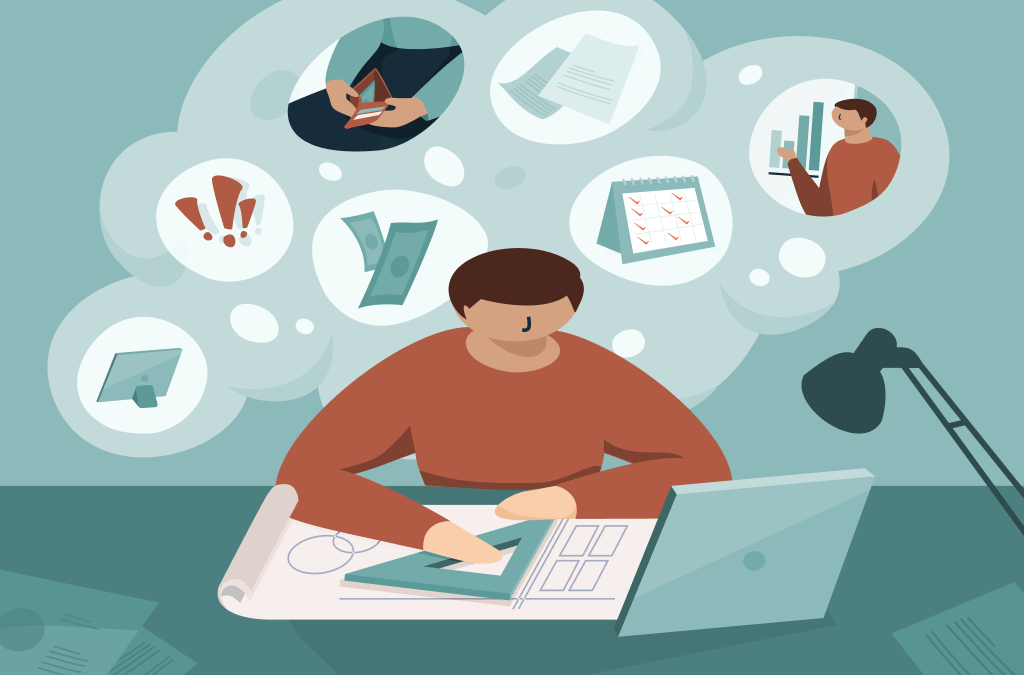
Psychological Needs in the Workplace: How to Meet Them
Deadlines, conflicts, pressure to perform—many people grapple with stressors at work. The extent to which these weigh on someone depends in large part on whether psychological needs are being met at work.
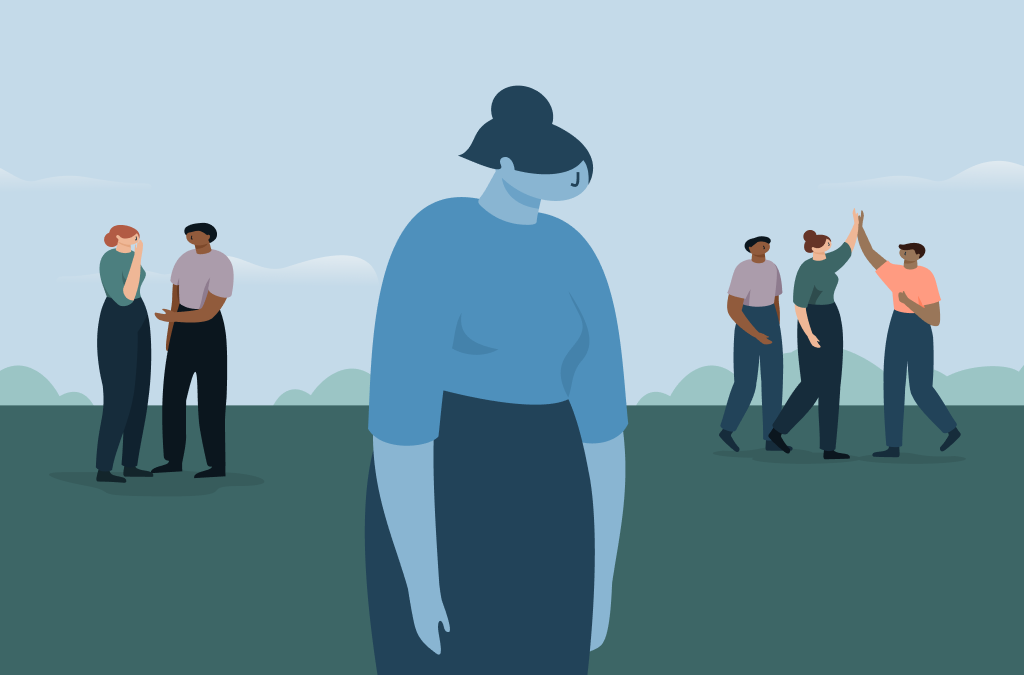
High-Functioning Depression: The Hidden Suffering
When people think of depression, usually intense sadness, low energy, social withdrawal, difficulty getting out of bed, and managing daily life come to mind. But this is not always the case.
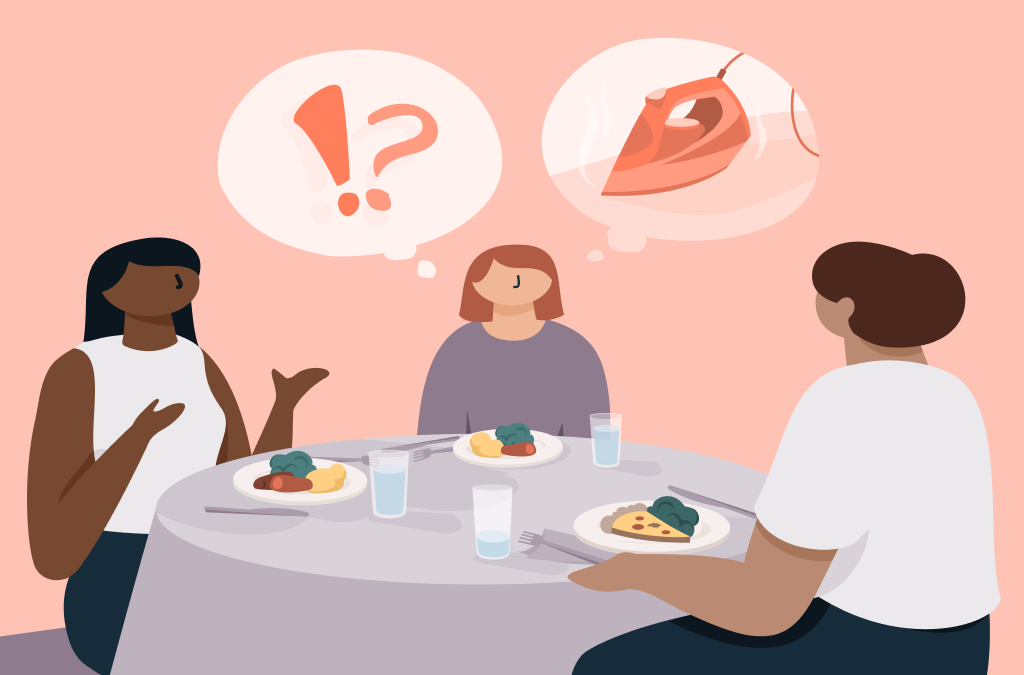
Obsessive-Compulsive Disorder: When Thoughts and Actions Become Torture
In this article, we explore what characterizes such thoughts and behaviors as well as how they can be treated.
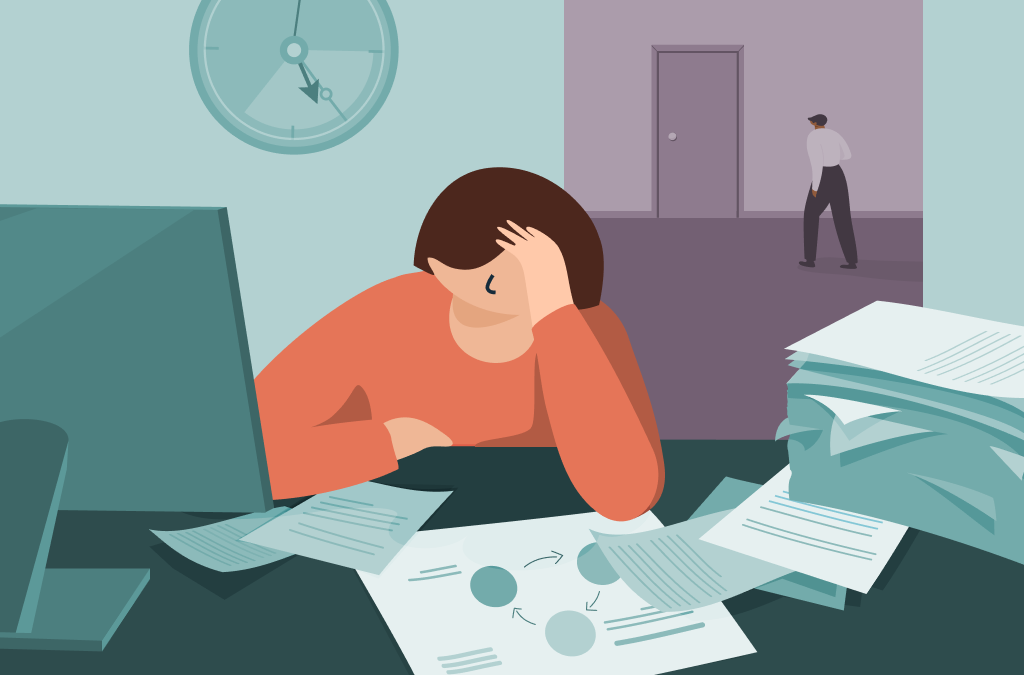
Bullied at Work—Here’s What You Can Do!
In this article, we look at the nature of workplace bullying, its causes and consequences, and what you can do if you are being bullied at work.



